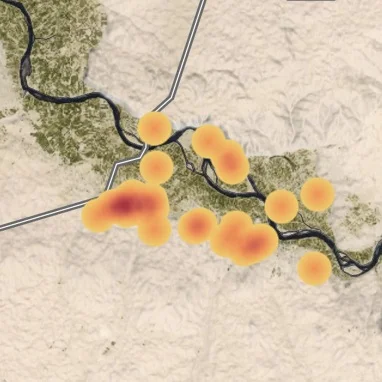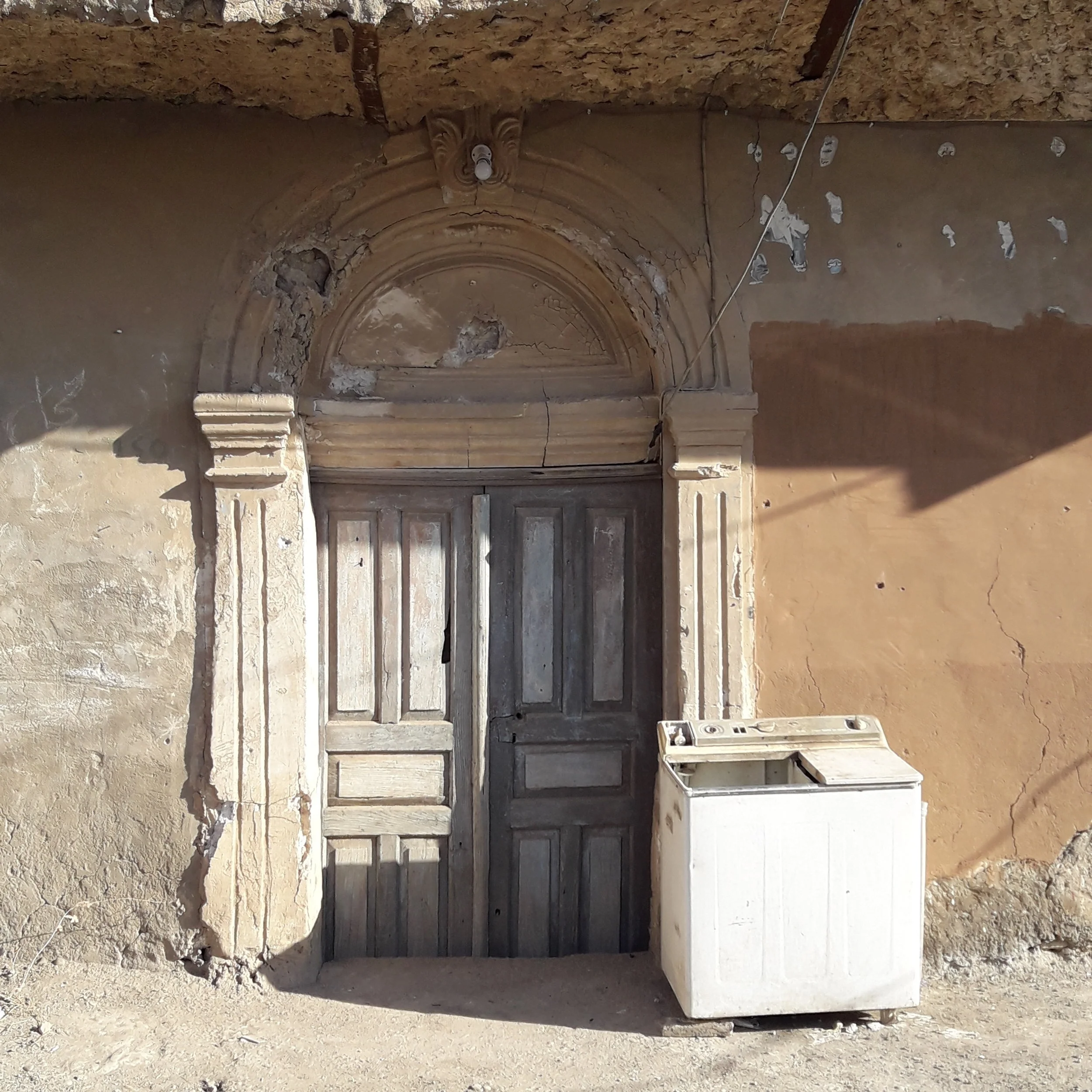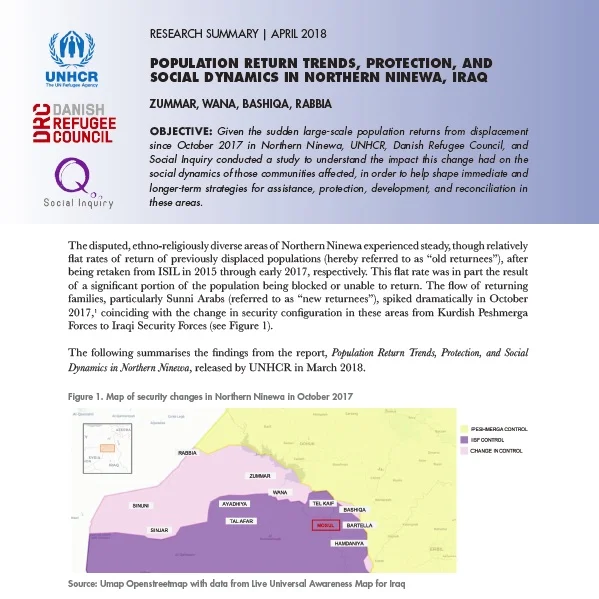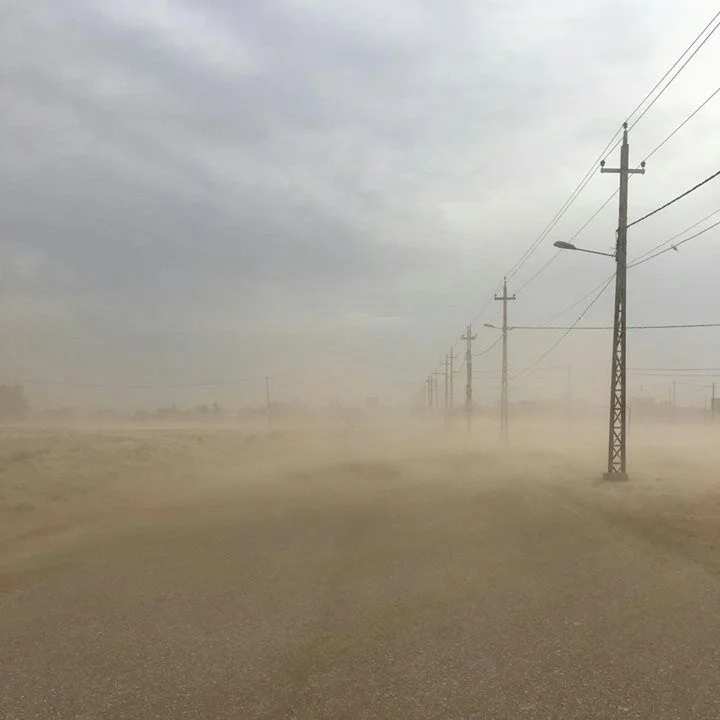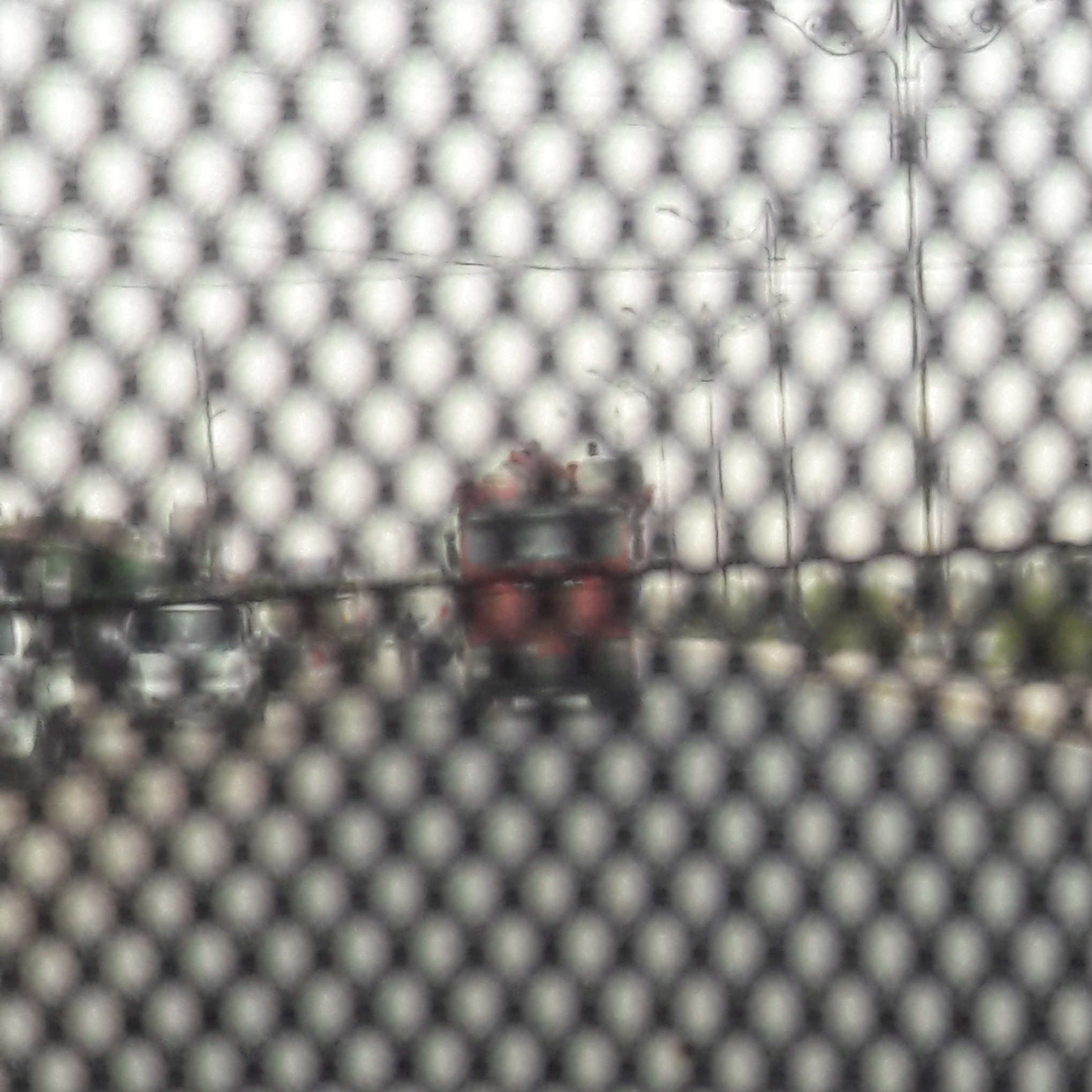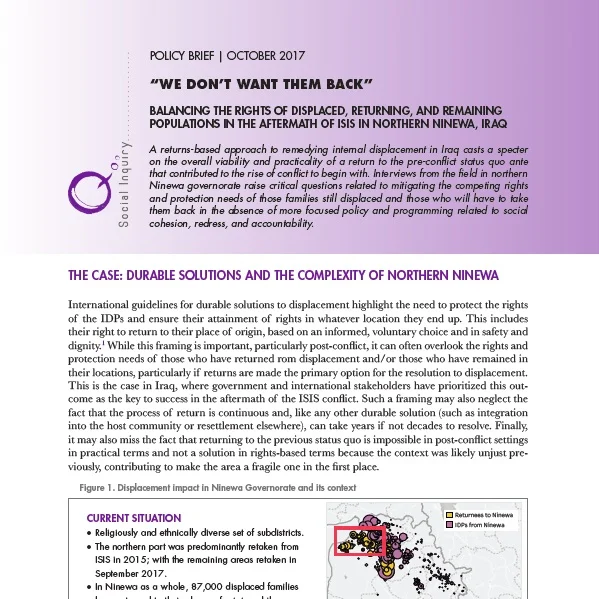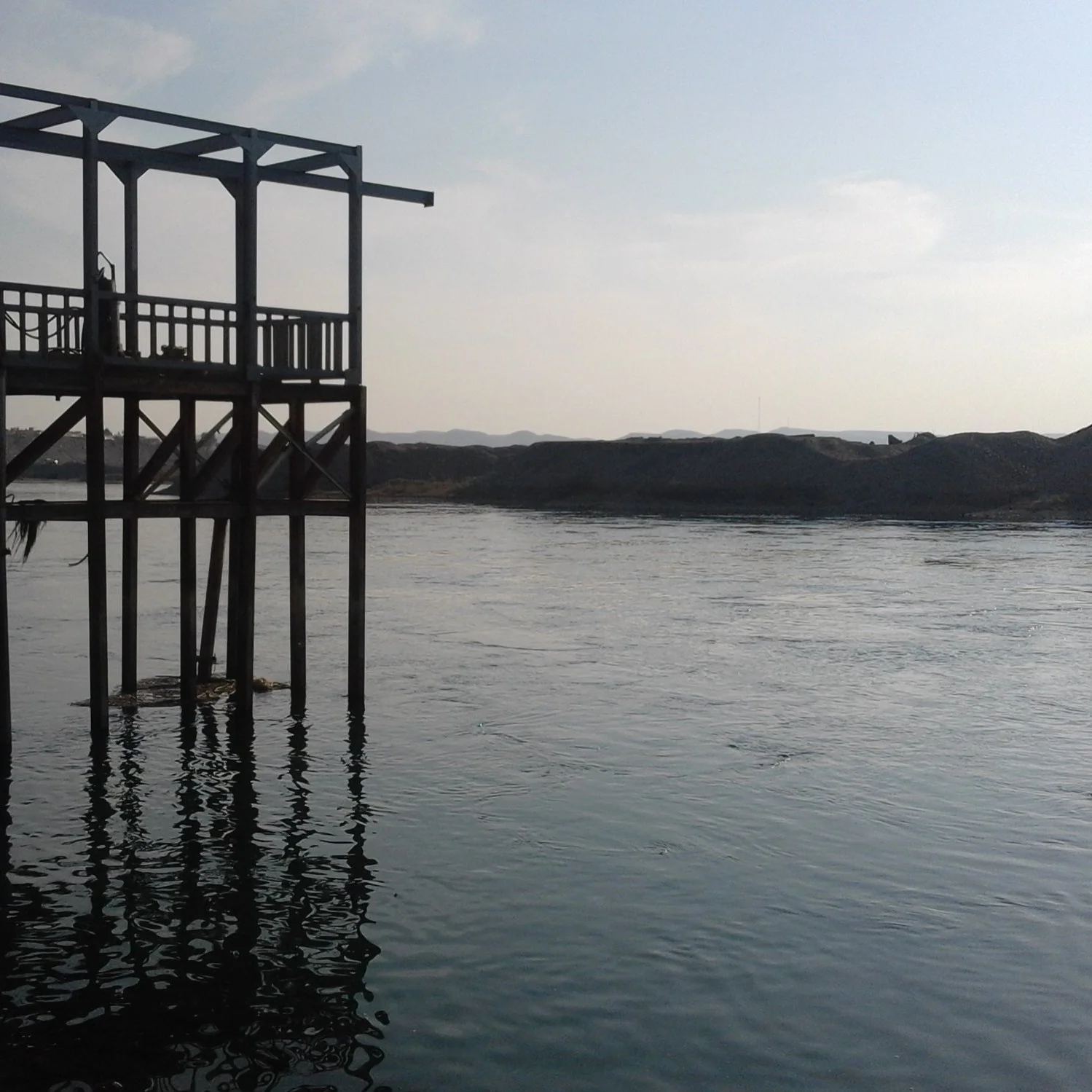The convergence of governance gaps and environmental change is undermining the ability of families in southern Iraq to sustain themselves from agriculture and livestock production, forcing many to move. This report examines the displacement triggered by water scarcity in the south of Iraq based on qualitative and quantitative data collected among both displaced and non-displaced people from Basra, Missan, and Thi-Qar governorates.
Read MoreMore than 4.1 million internally displaced persons (IDPs) have returned to their places of origin across eight governorates in Iraq. The Return Index provides a means of quantitatively measuring the severity of physical and social living conditions in the locations to which they are returning, correlating data for services, livelihoods, social cohesion, and safety.
Read MoreThe notion of overcoming not only financial losses but destroyed social resources and stressful memories all factor into the analysis that internally displaced persons (IDPs) make when they consider the affordability of return. This study delves into the various issues and challenges that IDPs consider when assessing the calculations they make when considering whether or not to remain in displacement.
Read MoreCase study on the impact of conflict on the political economy of Sinjar district in Ninewa Governorate. This briefing examines changes in Sinjar’s value chains in the aftermath of ISIL and possible recovery interventions through a mapping of actors, systems, and networks in Sinjar’s agriculture, livestock, manufacturing, and retail sectors.
Read MoreInternally displaced persons’ (IDPs) mental health and the potential lack of appropriate resources for them may further influence their ability to cope in displacement toward durable solutions. While mental health may play a critical role in resolving displacement, it is particularly understudied. This research seeks to address this gap and help in further elucidating the relationship between mental health and potential stressors in displacement.
Read MoreAs the rate of return of internally displaced persons (IDPs) to their places of origin in Iraq slows down, it becomes increasingly important to understand what the local integration of these households into their host communities may look like. This entails not only exploring IDPs’ living conditions and perceptions, but that of the host community as well to support both in ensuring all are equally woven into the local fabric at large.
Read MoreNew and longstanding historical grievances intersect in Sinjar district between its diverse populations, particularly among Ezidis and Sunni Arabs. This influences not only social cohesion but the overall political economy of the district as well.
Read MoreThere remains 1.9 million internally displaced persons (IDPs) in Iraq as of October 2018, with some in protracted displacement already and others at risk for it. This study sought to propose a base for classifying reasons why IDPs remain in displacement: housing, livelihoods and services, social cohesion, security, and mental health.
Read MoreNinewa Governorate provides a particularly useful case study on how violent extremism is viewed across diverse communities and how longstanding and deep-seated grievances among any group can lay the foundations for continuing violence if not addressed.
Read MoreDevelopment of an indicators framework, specifically for ethno-religiously diverse communities, to measure social cohesion, stabilization, and conflict between and within communities and between communities and the state. Piloted in northern Ninewa Governorate, the quantitative survey is run over three periods of time.
Read MoreUncovering the impact of sudden population returns on social dynamics in northern Ninewa to help shape immediate and longer-term strategies for assistance, protection, development, and reconciliation.
Read MoreDiyala Governorate, a microcosm of Iraq given the diversity of its residents and its terrain as well as its strategic location, highlights both the positive aspects of this mosaic as well as the tensions inherent in it. The governorate is also both underserved and understudied. This large-N perceptions study related to peace and conflict seeks to address this gap.
Read MoreOverview of key social, political, and security issues to be faced in post-conflict Ninewa. Understanding the complex social fabric of this governorate is critical to ensuring that reconstruction in one of the most heavily ISIS affected areas in Iraq is not simply rebuilding over shaky foundations.
Read MoreThe growing interplay between past, current, and emerging dynamics in Salahaddin Governorate makes it necessary to understand how both returnees and those displaced within it feel about their current situation ahead of implementing large-scale early recovery programming.
Read MoreHighlighting the competing rights and protection needs of those families still displaced and those who will have to take them back, particularly in regard to those who did not flee at the “appropriate” times or who belong to the “wrong” identity group.
Read MoreIn working toward building long-term peace, stability, and prosperity in post-conflict Iraq, a deeper understanding of complex local social, political, and security factors is needed to best carry out programming geared toward mitigating tensions and strengthening relationships.
Read MoreBy reconceptualizing social fragility, with findings from three governorates, this study highlights that social cohesion and relationships are not byproducts of policy and programming, but must be placed at the center of any strategy to help societies move toward lasting and just peace.
Read More

